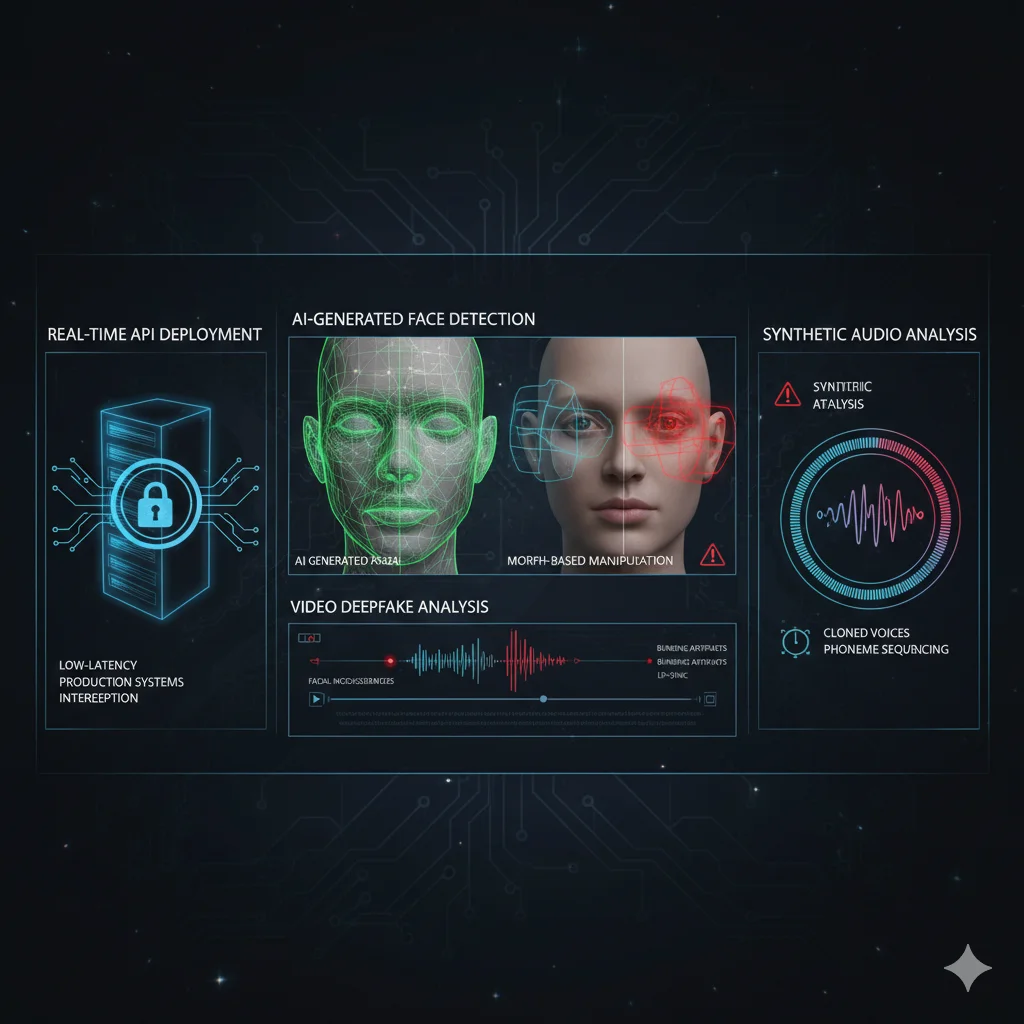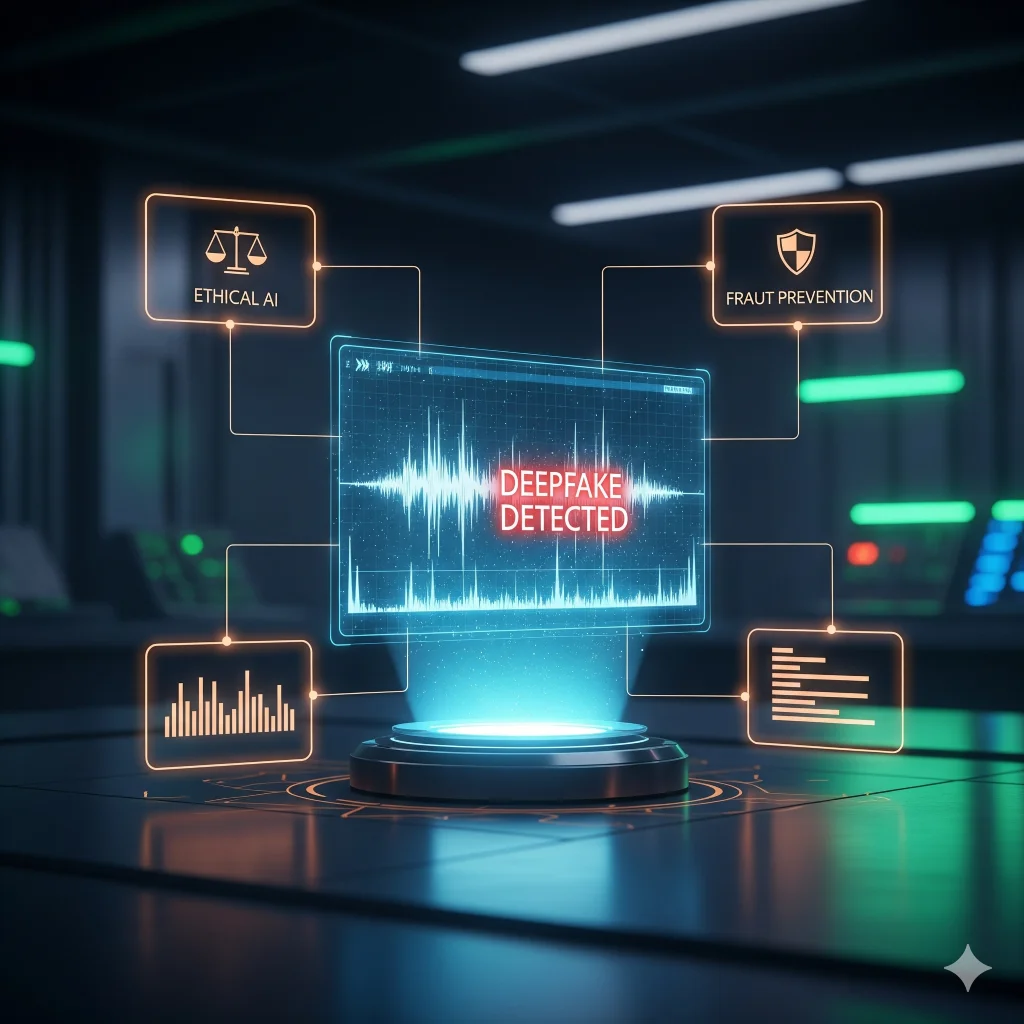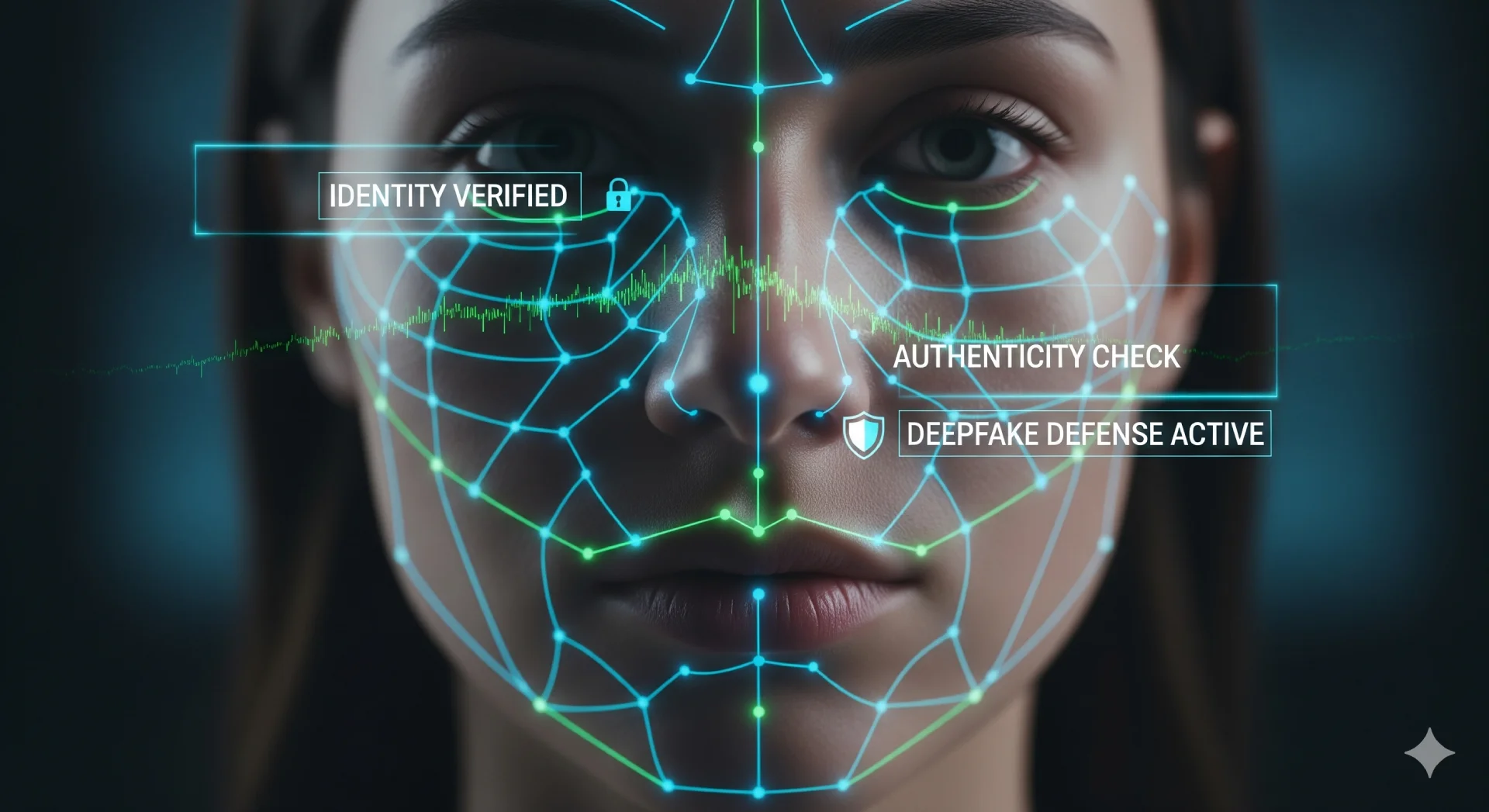As generative AI advances, so do the threats it creates. Deepfakes, hyper-realistic synthetic videos or images, can now mimic faces, voices, and expressions with alarming accuracy. At Facia, we equip businesses with advanced deepfake detection to stop manipulated content before it breaches your systems, your users, or your trust.
Deepfakes as a growing threat to enterprise integrity
Synthetic ID fraud cases between 2021–2023
Projected losses due to digital identity fraud by 2026
Deepfakes are no longer limited to social media manipulation or satire; they are now being used to bypass KYC processes, fool biometric systems, and impersonate executives in high-stakes transactions.
Organizations are now battling:
Traditional systems are blind to generative manipulation. Facia’s detection model isn’t.


Our proprietary deepfake detection model is engineered using multimodal AI and forensic analysis, enabling fast, accurate identification of manipulated media in real-time. Built with real-world deployment in mind, it integrates directly into existing biometric verification systems and supports cloud or edge processing.
Prevent synthetic face-based account creation
Detect AI-masked candidates or impersonators
Block deepfake intrusions in biometric-secured systems
Flag manipulated profiles to ensure authenticity
Facia’s deepfake detection system is designed to meet global expectations for ethical AI use and fraud prevention:
Privacy. Accuracy. Integrity. Without compromise.

Stop synthetic fraud during high-value transactions and loan processing
Detect deepfakes used in DAO impersonations and token theft
Flag manipulated seller/buyer identities before they disrupt ecosystems
Secure telemedicine and EHR access against fake video-based authentication

Facia empowers businesses to verify not only who someone is, but whether that identity is even real. As generative media grows more sophisticated, detection can no longer be optional.